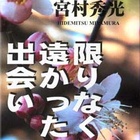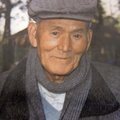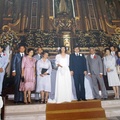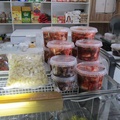At that time, my father was working as a dental technician in Santos. He was 28 years old and single. Later, he opened a dental practice under the name of a white dentist, though not officially. His old diary contains stories of his hardships and failures at the time, the people who helped him, his fun single life in Santos, and his fun at glamorous casinos. Six months before the war, my father met Toshiko, who would later become my mother, through an acquaintance named Jimbo. The diary contains sweet stories of his romance with my mother, including the time of the attack on Pearl Harbor.
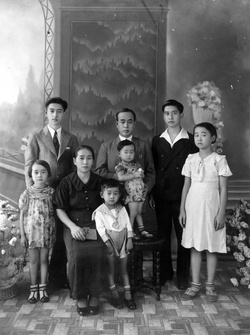
My father was taken care of by Yoshihiro Yoshisuke and his family when they were living in Santos City. In the back row on the left in this photo taken around 1938 is Robert's father.
At 6 p.m. (Brazilian time) on December 7, 1941, the following was written:
"Imperial Japan opened the gates to war against Britain and America. From 7:00 p.m. on December 8th until 11:00 p.m. I tuned in to the radio to hear my country's declaration of war. Already at 10:30, the Philippines and Hawaii were turned into a stage of fire by the brave actions of our Imperial Army. In Brazil, anti-Japanese sentiment is at an extremely high level, and all my compatriots are in trouble. These days I go to listen to the radio every night. I often talk with Mr. and Mrs. Yoshihiro1 and him about war and social issues. I think that if Brazil enters the war, we will also be persecuted."
During the war, my parents overcame hardships and got married without a ceremony, with a travel permit between Santos and Sao Paulo in hand. And the following year, my older sister, Yukiko, was born. The diary continues.
"On July 7th, 1943, a sudden order was issued for Japanese and Germans to leave Santos, which caused some problems for everyone. It arrived at about 3pm for me. I was busy all day that day, having meetings at the consul's (Spain) office and contacting friends. When I was exchanging my money for Spanish gold, I was caught by a police officer, which caused some trouble. On the 8th, at 10am, a group of 700 people set out for Santos. We arrived at 3pm. We met up with the first people to arrive and had various conversations. Under heavy guard, we completed various formalities and spent the night in an internment camp. I felt sorry for Yukiko. But she was surprisingly fine.
The morning of July 9th was busy from early on. Everyone was angry because they were treated like prisoners. I argued with Fiskar about my luggage and he got angry at me, which made me look stupid. In the end, it was a loss. There was nothing I could do, I would have to make it up to him after the war. I arrived at Sorocaba Station in Camion with a detective. All the citizens of the city of Saint were watching. "Just wait and see!" I couldn't help the fire of righteous indignation that was burning in my heart."
The war continued for another two years. It is impossible to read the diary written on August 16, 1945, the day the war ended, without feeling, "Why did he have to do this again...?" My father was 30 years old at the time, and was filled with patriotism. I can see him writing, filled with a sense of helplessness.
"Great victory - the end of the Greater East Asian War - the long-awaited good news of the great victory that will see our Empire of Japan reign over the world is not disappointing to our expectations and is being reported with each passing moment. One hundred million people united in spirit, that is, a great national victory for our Yamato people, the great end of the Greater East Asian War, and a great victory in the World War."
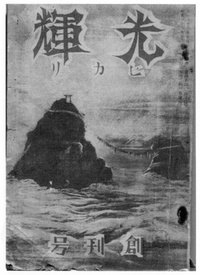
My father was a firm believer in the victory of Imperial Japan and published the winner's magazine, Kikko.
As a child after the war, I lived in the state of Paraná, where, as in other areas, the Japanese immigrant community was divided into two factions: the winners and the losers.
At that time, my father worked as a traveling dentist in the countryside and was the head of the Paraná state branch of "Kikou," a monthly magazine published by the winners. There is not a single copy of "Kikou" left at home. I don't know what the magazine was about, but I am now interested and would like to read it someday.
What drew me to this is that as I get older, I feel a growing desire to find an answer to the question, "What was World War II all about?"
I think that our generation has a duty to convey this truth accurately to the next generation. This is because the history we usually learn in Brazilian schools and the main books that talk about this war are mainly written from the perspective of Europe and America, and that is the only meaning that is considered legitimate. By knowing history accurately, we can understand the various crossroads that our people and their ancestors have taken. And I think that should be our guide in life.
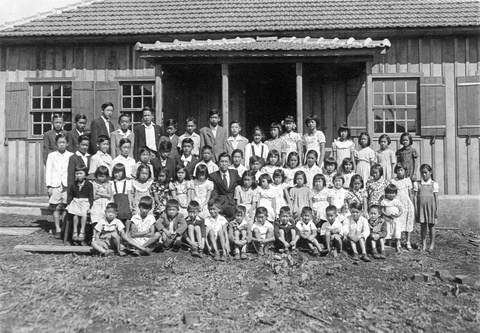
The elementary school where I learned Japanese was mainly for the "winners" children. I am sitting on the far right side of the front row. In the second row, sixth from the right, is my older sister, Yukiko. In the center is my teacher, Mr. Yamaoka. Photo taken in 1950.
Notes:
1. Mr. Yoshihiro Yoshisuke (1882-1978), from Tokuyama County, Yamaguchi Prefecture, is not only related to my father, but also to a mysterious coincidence that transcends generations. My friend, Robert Sadao Yoshihiro, who also worked at NEC, is Mr. Yoshisuke's grandson. His grandfather took an unusual adventure at the time in 1901, at the age of 19, and boarded an American cargo ship as a stowaway, only to be discovered at an African port. He then safely reached Los Angeles and lived in the United States for 16 years, until he was 34. He returned to Japan in 1917, in the midst of World War I, got married at the age of 35, and immigrated to Santos Port on the Buenos Aires Maru in 1926 with his wife Fusa and their two children. In Santos, he ran a sardine manufacturing business, and was a successful businessman who played an active role in a wide range of social situations. In my father's diary, he is written about as the teacher whom my father respected the most.
* * *
Postscript: I wrote this essay eight years ago. At the time, I didn't really understand what the "Pacific War" was. After that, I read "Showa History" from various angles, and in particular, I received a book by Kazutoshi Hando from a Japanese friend, and I realized how big the influence of the media was. I also had the opportunity to recognize and think deeply about how the supreme command of the Emperor, which was in the prewar constitution of Imperial Japan, was used at will by mainly activists in the army, and although things were fine until the founding of Manchukuo, after that, the invasion of China began in earnest, and the country became mired in a quagmire. The fact that the Navy was completely defeated at Midway, and four carrier ships were sunk, was not reported to the public at all.
I find it incredibly strange and heartbreaking that my father, in Brazil, wholeheartedly believed the information he was listening to on shortwave radio broadcast from Tokyo, even though it was a lie. And the American occupation forces brought an end to Japanese militarism. The Japanese language I learned began with "Saita, saita, sakura ga saita" in my elementary school textbooks. There were Japanese fairy tales, myths such as Urashima Taro, Momotaro, Issun-boshi, Hanasaki-jiji, Emperor Jimmu, and Amaterasu Omikami, and we were also taught about the Sino-Japanese War and the Russo-Japanese War. However, in postwar Japan, there is hardly any time to teach about Japan at that time. It is truly unfortunate and heartbreaking.
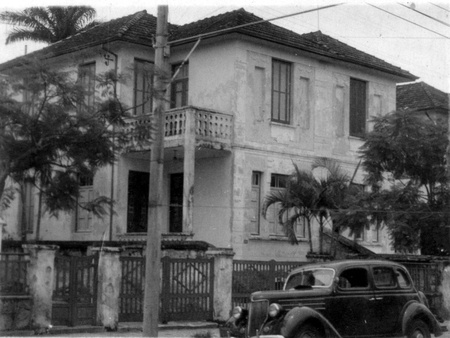
The home of Yoshihiro Yoshisuke, where his father listened to shortwave radio broadcasts from Tokyo during the war.
*This article is an updated version of a column originally published in the São Paulo Newspaper's "Readers' Room" on February 12, 2005.
© 2004 Hidemitsu Miyamura


